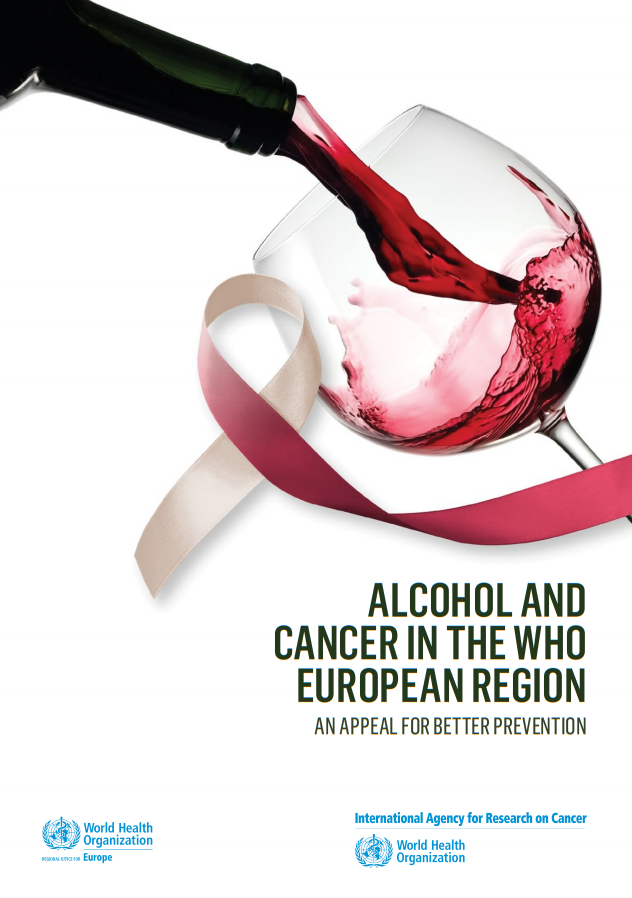Alcohol causes cancer and many other non-communicable diseases worldwide, thereby increasing the global disease burden. Globally about 3 million people die prematurely every year because of alcohol. In the WHO European region alcohol causes:
- 2545 deaths every day,
- 180,000 cases of cancer and 92,000 resulting cancer deaths in 2018 alone,
- 45,000 cases of breast cancer among women and 12,100 resulting deaths in 2018, and
- 59,200 cases of colorectal cancer in women and men, with 28,200 consequent deaths in 2018.
This is not just another cancer scare story that people can ignore. We have really strong evidence showing that alcohol consumption, even at low levels, can cause cancers,” said Dr. Nino Berdzuli, Director, Country Health Programmes Division, WHO Europe, as per WHO Europe website.
All types of alcoholic beverages are linked to cancer, with the main carcinogenic compound being ethanol.”
Dr. Nino Berdzuli, Director, Country Health Programmes Division, WHO/Europe
In a blog post earlier in 2020, Maik Dünnbier wrote that the death rate from alcohol-related cancers was shockingly high worldwide, but especially in Europe, with four of the top nine countries for alcohol-related cancer deaths being in the European region.
According to WHO’s 2018 Global Alcohol Status Report, the alcohol-related cancer mortality in the nine countries with the biggest burden:
- China: 78.052 cancer deaths due to alcohol (population of 1.4 billion),
- India: 30.958 (population of 1.3 billion),
- USA: 30.859 (population of 327 million),
- Russia: 28.702 (population of 144 million),
- Japan: 20.124 (population of 126 million),
- Germany: 14.696 (population of 82 million),
- Brazil: 13.332 (population of 209 million),
- France: 10.982 (population of 67 million), and
- UK: 10.412 (population of 66 million).
As Prof. Jürgen Rehm said during the launch of the new fact sheet, Germany could avert almost 2000 cancer cases just by raising their alcohol taxation to the level of Finland.
The public needs to know about this; for example, in 2018 in the WHO European Region, alcohol consumption caused about 45,500 cases of breast cancer in women, with 12,100 consequent deaths, and about 59,200 cases of colorectal cancer in women and men, with 28,200 consequent deaths.”
Dr. Nino Berdzuli, Director, Country Health Programmes Division, WHO/Europe
Alcohol and cancer in the WHO European Region: An appeal for better prevention
The new factsheet, prepared by the WHO European Office for the Prevention and Control of Noncommunicable Diseases (NCD Office), highlights the causal links between alcohol consumption and cancer of the oral cavity, oropharynx, esophagus, liver, larynx, colorectal and female breast.
Alcohol-related cancers of the larynx and oropharynx have relatively higher proportions of fatal outcomes, compared to other alcohol-related cancers.
The factsheet highlights that there is no safe level for alcohol consumption when it comes to cancer risk. This is regardless of type, quality or price of the alcohol.
By now, alcohol’s link to cancer is scientifically well-established, as is the fact that there is no safe level for alcohol consumption. The factsheet also highlights that the risk of developing cancers of the oral cavity, oropharynx, larynx and esophagus cancer is 30 times higher for those who use both alcohol and tobacco compared to those who use only one of the substances.
Tackling alcohol harm with cost-efficient measures
Reducing the burden of NCDs by reducing risks related to alcohol use is one of the core priorities outlined in WHO’s European Programme of Work, 2020–2025.
It is very important for countries of the WHO European Region to implement measures that will raise awareness among consumers and contribute to reducing alcohol consumption levels,” said Dr. Carina Ferreira-Borges, Programme Manager for Alcohol and Illicit Drugs at WHO European Office for the Prevention and Control of Noncommunicable Diseases, as per WHO Europe website.
Alcohol-attributable cancers and deaths can be prevented by policies that already exist and are known to be effective but are still not popular enough among many Member States. These include WHO’s ‘best buys’, which reduce alcohol affordability and restrict alcohol marketing and availability. We know what works, we just need to do more of it.”
Dr. Carina Ferreira-Borges, Programme Manager for Alcohol and Illicit Drugs at WHO European Office for the Prevention and Control of Noncommunicable Diseases
The WHO’s best buy policies are evidence-based proven effective measures in reducing alcohol harm and can be used to prevent alcohol-related cancers.
The three alcohol policy best buy solutions are as follows:
- Increase excise taxes on alcoholic beverages;
- Enact and enforce bans or comprehensive restrictions on exposure to alcohol advertising (across multiple types of media);
- Implement restrictions on the physical availability of retailed alcohol (via reduced hours of sale).
Further the fact sheet recommends a range of interconnected measures including the following:
- Clear messaging that there is no safe level of alcohol consumption;
- Concerted action at national and international level;
- Increased levels of political commitment;
- Effective coordination of multisector action, safeguarding against influence by vested interests that are opposed to effective alcohol best buy policies;
- Appropriate and widespread engagement of public health oriented nongovernmental organizations, professional associations and civil society groups.
For further reading from the blog portal
3 Reasons Why The Alcohol-Cancer Link Is A Social Justice Issue
by Maik Dünnbier
